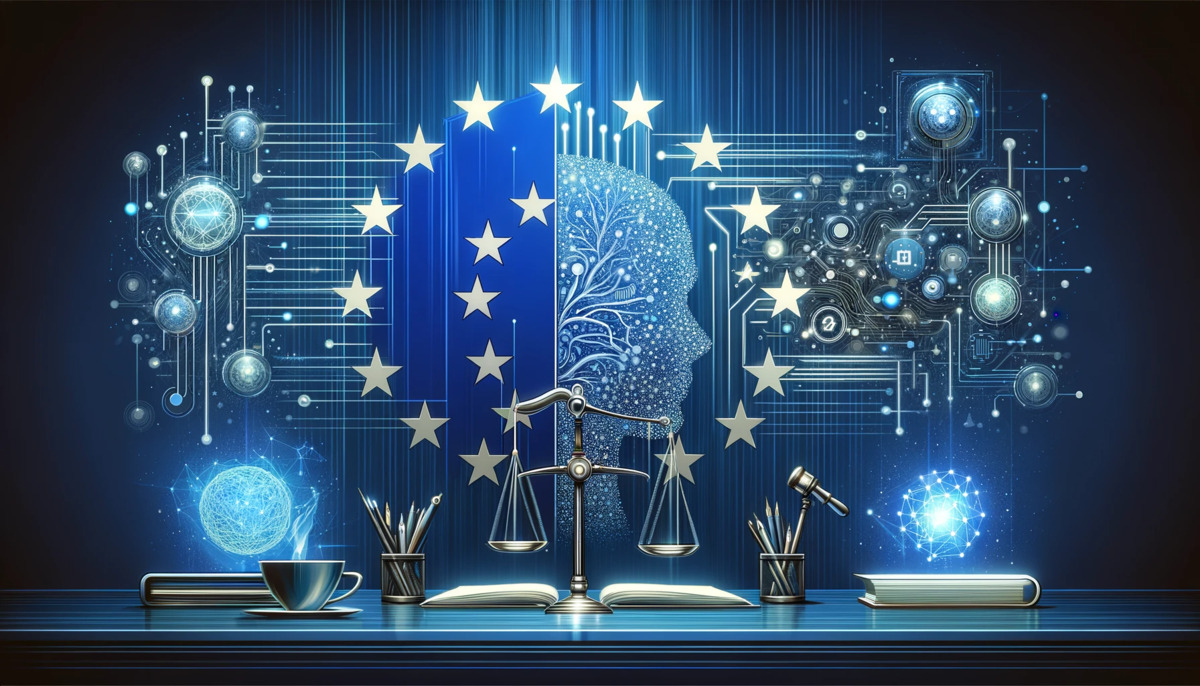The Vision of the AI Act
The AI Act is the result of intensive collaboration between the EU's main institutions and reflects the ambition to create AI systems that are not only safe and reliable but also respect the values and fundamental rights of the EU. Carme Artigas, the Spanish Secretary of State for Digitalization and Artificial Intelligence, describes the agreement as a "historic success" and a "milestone towards the future." The AI Act aims to make Europe a leading player in the field of AI while ensuring that the development of this technology is in line with the rights and freedoms of citizens.
Key Points of the AI Act
Definition and Scope
The AI Act clearly defines AI systems and distinguishes them from simpler software systems. It follows the OECD's approach and excludes free and open-source software unless they fall under high-risk systems or prohibited applications.
Classification and Prohibited Practices
The AI Act introduces a classification of AI systems, with high-risk systems subject to strict requirements. At the same time, the law bans certain AI applications considered an unacceptable risk, such as manipulative techniques and social scoring.
Exceptions for Law Enforcement Authorities
The AI Act allows the use of AI by law enforcement authorities under strict conditions, including the use of Remote Biometric Identification (RBI) in public spaces, but only under stringent conditions and for precisely defined lists of crimes.
General AI Systems and Foundation Models
The AI Act introduces new provisions for general AI systems and foundation models that can handle a wide range of tasks. These models must meet specific transparency obligations before being brought to market.
New Governance Architecture
An AI Office within the Commission will be established to monitor compliance with the rules and coordinate the member states. A European AI Board and a scientific panel of independent experts will advise on the enforcement of the regulation.
Penalties
The penalties for violations of the AI Act are substantial and can amount to up to 35 million euros or 7% of global turnover.
Transparency and Protection of Fundamental Rights
An assessment of the impact on fundamental rights is required before the market launch of a high-risk AI system. Users of high-risk AI systems must be informed about their deployment.
Promotion of Innovations
The AI Act promotes innovations by establishing regulatory sandboxes and the possibility to test AI systems under real conditions.
Entry into Force
The AI Act is expected to apply two years after its entry into force, with exceptions for certain provisions.
Analysis of Findings
The AI Act is a groundbreaking piece of legislation that will fundamentally change the way AI systems are developed, marketed, and used in the EU. By introducing a risk-based approach, the EU sets a global standard for AI regulation, similar to the GDPR for data protection. This approach could be emulated worldwide and promote the European approach to technology regulation on the global stage.
The balance between promoting innovation and protecting fundamental rights is a central element of the AI Act. The establishment of regulatory sandboxes and the possibility to test AI systems under real conditions are exemplary of the law's innovation-friendliness. At the same time, the obligation to assess the impact on fundamental rights and the introduction of transparency obligations protect citizens' rights.
The new governance architecture, the establishment of an AI Office, and an AI Board, demonstrate the EU's commitment to ensuring effective monitoring and coordination of AI regulation. The penalties set for violations of the AI Act are a clear signal that the EU foresees serious consequences for non-compliance with the rules.
Overall, the AI Act represents an important step towards a responsible and human-centered development of AI technology. It could serve as a model for other countries looking to develop similar regulatory frameworks.
Conclusion
With the AI Act, the European Union positions itself as a pioneer in shaping a responsible approach to AI technologies. The comprehensive regulations of the AI Act provide a framework that ensures both the promotion of innovations and the protection of citizens' rights. This law could lay the groundwork for a global norm in dealing with AI and demonstrates Europe's commitment to a technological future based on the principles of safety, transparency, and respect for human rights.


